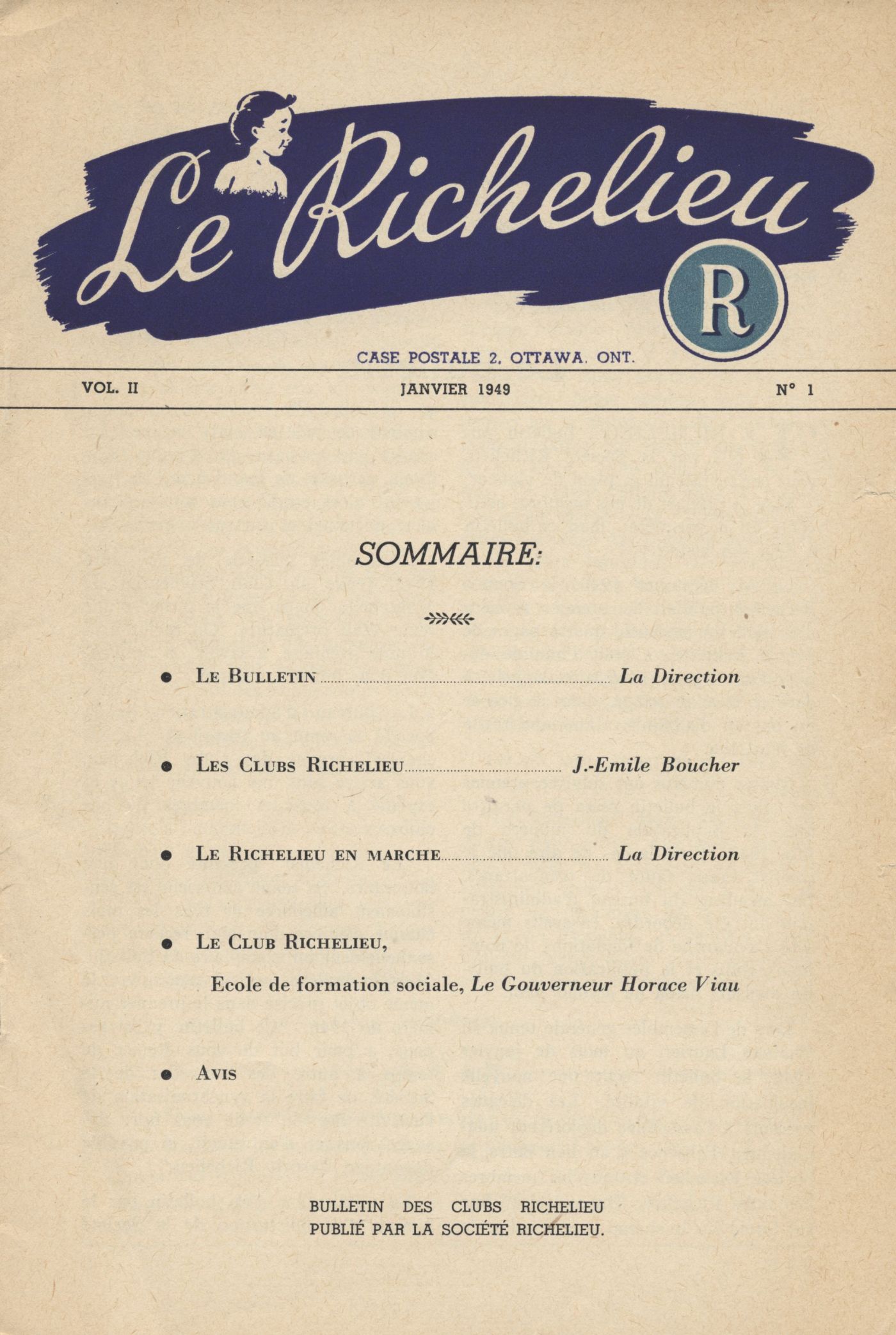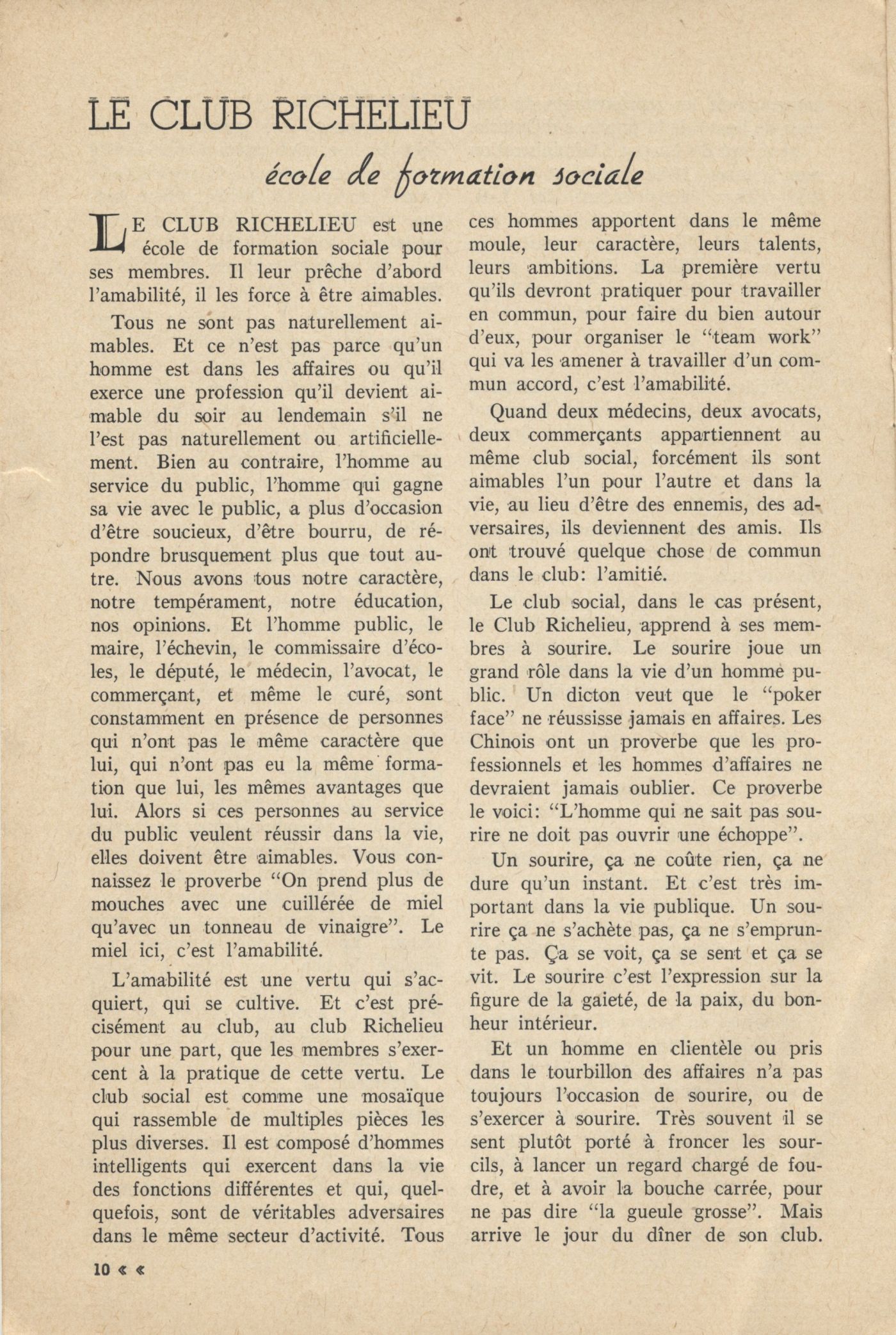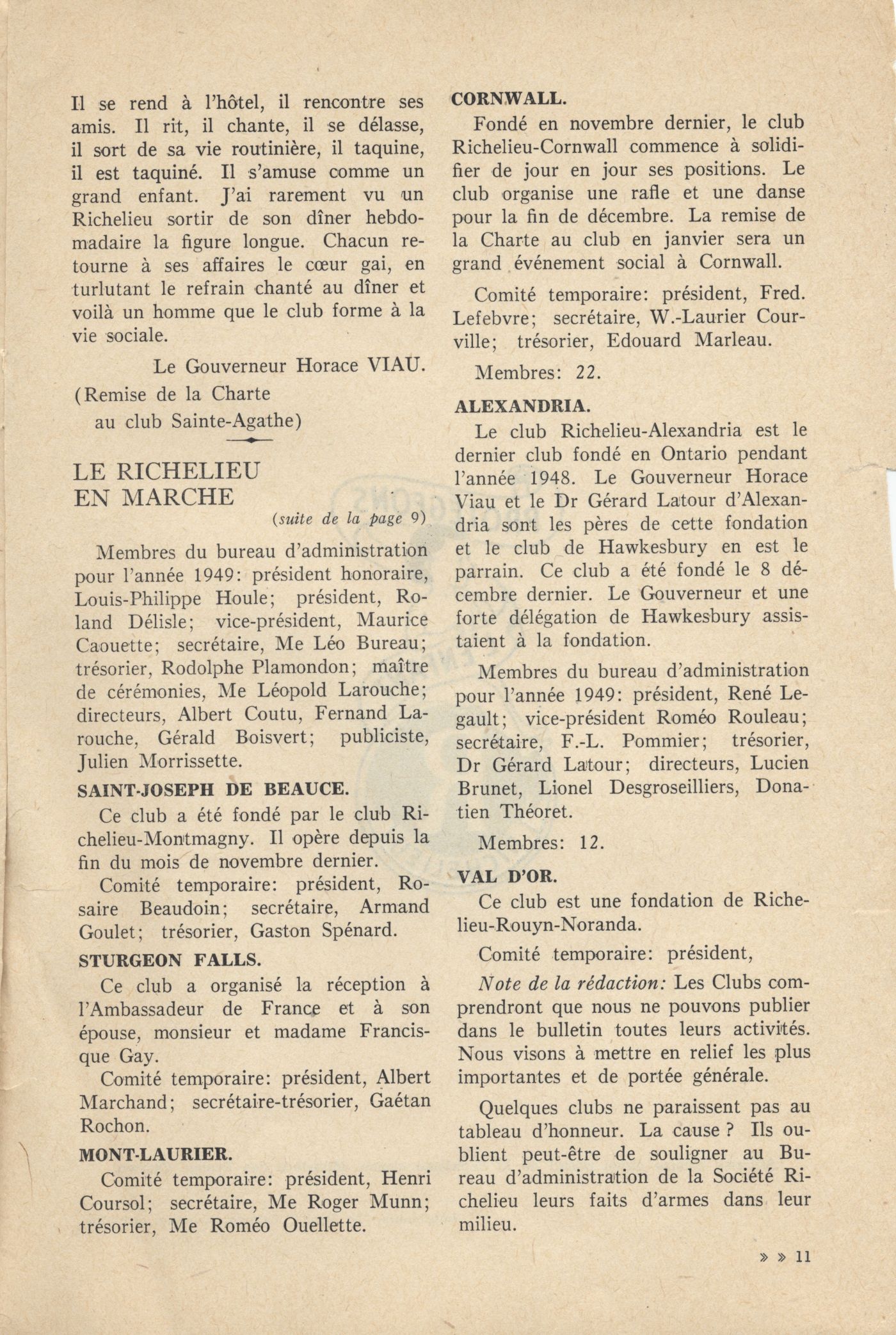During the first half of the 20th century, French Canadians in Ottawa and elsewhere join English-speaking social and charity clubs such as Rotary, Kiwanis and Lions. The phenomenon raises the concerns of the Ordre de Jacques-Cartier (OJC), a secret nationalist and Catholic society created in the federal capital in 1926.
In 1944, the OJC founds a parallel organization, the Société Richelieu, with the mandate of overseeing, from Ottawa, the creation of an extensive network of Richelieu clubs. The first of these clubs appears in Ottawa-Hull in 1945. Twenty years later, it changes its name to Club Richelieu Ottawa, to better reflect its exclusive focus on engagement in the Ottawa area.
The raison d’être of the Ottawa club, and all clubs involved in the Richelieu movement, is both sociocultural and philanthropic. On the one hand, the club offers entertainment activities (bingo, shared meals, gala evenings, etc.), talks and public lectures, making the club an important social hub for Ottawa’s Francophone community. On the other hand, the club manages fundraisers to fight against poverty, with a focus on children from disadvantaged backgrounds. It organizes holiday camps and coordinates outdoor excursions, while its social service works with children with disabilities.
Dozens of clubs are established throughout the Canadian and North American French-speaking community before the movement embarks on conquering the Francophone world abroad. The Société Richelieu consequently becomes Richelieu international, with clubs in the West Indies, Africa and urope. The first African club is established in 1973 in Dakar, Senegal.


